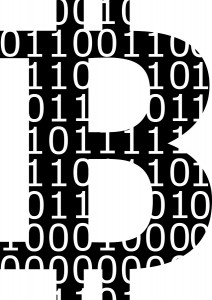For several months, central banking and government officials have lambasted bitcoin for being the currency of choice for those operating the underground economy. The black market in any nation, especially a state with numerous laws, is quite lucrative: the United States underground economy is pegged at $2 trillion, while Canada’s is worth at close to $40 billion annually.
Before criticizing bitcoin, one must ask the question: why is there an underground economy in the first place? When the government bans certain products, taxes other items to oblivion or implements strict controls then there will be others who will see an opportunity and take advantage of it. These are known by law enforcement as criminals. As Milton Friedman argued, no one is really a criminal until the government installs prohibitions and establishes new questionable laws. In other words, governments make you a criminal.
 Indeed, there might be some merit to what Treasury officials argue; bitcoin due to its anonymity can be utilized for money-laundering schemes and terrorism financing. So can an array of other currencies and commodities. It must be understood that the underground economy is around as a result of government.
Indeed, there might be some merit to what Treasury officials argue; bitcoin due to its anonymity can be utilized for money-laundering schemes and terrorism financing. So can an array of other currencies and commodities. It must be understood that the underground economy is around as a result of government.
This point can be seen in Argentina, a country that has been suffering from astronomical inflation, price controls and production quotas, which have led to shortages. People who saved their entire lives are losing the value of their wealth because of the inept policies of the Cristina Fernandez de Kirchner administration. These families have begun to acquire luxurious vehicles, homes, precious metals and bitcoin just so they wouldn’t diminish their wealth. Whether or not one endorses the concept behind digital currencies, bitcoin has proven to be a very valuable asset to numerous households across Argentina.
“Argentina is very attentive to all these kinds of things. As a country we, all Argentines, have suffered financial crises many times… They see in Bitcoin an opportunity to avoid the problems that we suffer here,” Rodolfo Andragnes, vice-president of Fundación Bitcoin Argentina, told the Argentina Independent.
Venezuela, another Latin American country enduring the pains of inflation and failed government policies, also has an underground economy, though President Nicolas Maduro and his henchmen would like to deny the fact by suppressing local media outlets. It should be noted that there haven’t been any reports of bitcoin usage in Caracas, but government is fierce in what is permitted to be reported.
Zimbabwe is an African country that has been marred by an oppressive regime in Robert Mugabe, a man that pledged peace when he fought against British colonialism alongside Rhodesian Prime Minister Ian Smith, who conceded “everything [Mugabe] has ever done is about keeping himself in power.” In addition to violence, its economic and monetary policies have been destructive.
This is why ZimCoin was launched, a cryptocurrency designed in response to hyperinflation.
Bitcoin and other elements are saving lives every day in the underground economies located in disastrous countries. Perhaps the need for virtual currencies and a black market wouldn’t exist if the government wouldn’t interfere with market practices and individual lives through immense taxation on “sinful” goods and reckless policies.



